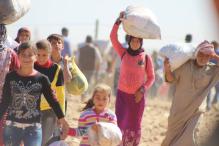Preventing violent conflict is a central goal of the United Nations and a clear priority for Secretary-General António Guterres. It is generally recognized that for prevention to be effective, the UN must act earlier, often in non-mission settings where the UN is led by a Resident Coordinator (RC). Recent reform of the UN Development System has been geared at making the RC system more capable of addressing prevention challenges, including by aligning political, development and humanitarian work of the UN.
In the context of these reforms, the Sahel presents an immediate challenge, given the inter-related security, humanitarian and political risks facing the region as a whole. In recognition of these risks, the UN has prioritized the Sahel, undertaking a wide array of new initiatives, channelling resources, and working in innovative ways with a range of partners in the region.
This policy paper was developed to directly support the UN’s understanding of the situation in the Sahel, and of the ways in which the UN system in non-mission settings can better respond to current and emerging risks. Acknowledging that the UN reforms are still in early phases of rollout, the paper identifies emerging practice in the UN’s prevention efforts across the Sahel.
It finds that, while often the UN plays a minor and/or supporting role in conflict prevention, some of the new approaches arising from the reforms have enabled potentially greater impact and certainly stronger synergies that could be further leveraged into even more effective responses in the future.



